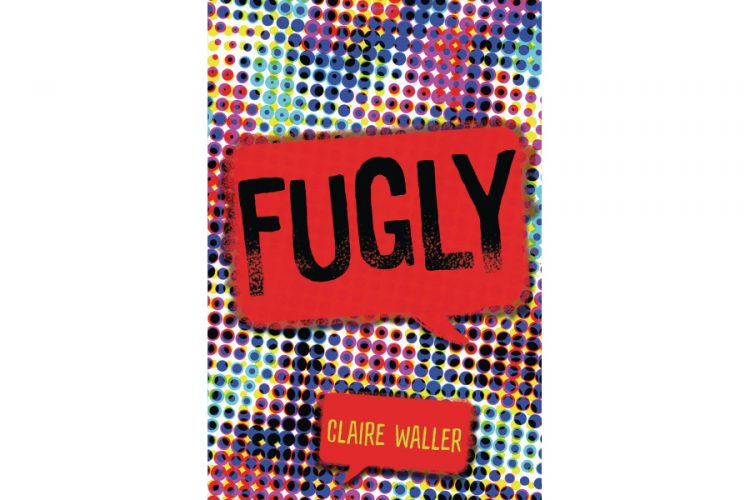“Who Needs A Story Like This?” An Editor’s Take on Fugly by Claire Waller

by Amy Fitzgerald, Editorial Director, Carolrhoda Books
Two years ago, when literary agent Allison Hellegers sent me Fugly, a young adult novel about a teen who channels her weight-centered self-loathing into internet trolling, my first thought was “Ugh. No thank you.”
Who, I thought, needs another story about a disaffected youth who lashes out at others? Who needs another story about the way the internet distances us from an awareness of other people’s humanity? Who needs another story about a self-described fat girl who hates her body and her life?
Then I started reading.
Author Claire Waller first got the idea for Fugly when she was out jogging and a passing teenager hollered at her, “WELL RUN THEN, YOU FAT BITCH.” Claire told me that despite all the ways in which she’s happy with and proud of herself as an adult, that sort of verbal abuse from a stranger—something she’s dealt with her whole life—can still feel crushing.
Eighteen-year-old Beth has encountered her share of this casual, judgmental cruelty. Combined with a dysfunctional home life, it’s had a debilitating effect on her. She channels her resentment and her need for some sort of control into an online persona, anonymously bullying “the beautiful people,” whom she believes are exempt from the callousness she encounters in the real world.
It’s obvious to the reader—and to Beth herself—that she’s coping with her pain in a destructive, emotionally unhealthy way. But she’s also funny, smart, increasingly self-aware, and capable of great kindness and courage. She abhors in-person cruelty when she witnesses it in “real life,” is her own harshest critic, and ultimately (spoiler alert) recognizes the ways she’s perpetuated a cycle of harm.
I realized I needed this story. And I suspected that many teen readers did too.
Not because every person who grows up in a fatphobic society—which constantly tells them their weight signifies laziness, lack of discipline, and even worthlessness—inevitably struggles with bitterness and shame in the exact ways Beth does. Not because this is the only type of story that can and should exist about someone like Beth. And certainly not because I’m in the business of making excuses for people who behave vindictively while insisting, you made me this way.
But because Beth is in fact something quite rare: a genuinely complicated character. Very few trolls, I’d argue, actually have legitimate grievances. Very few bullies have been bullied themselves, though their manifestos may claim otherwise. As a society, we spend a great deal of time trying to understand people with significant privileges, particularly white men, who do and say heinous things. I found that my time was well spent empathizing with a less empowered person: a shy fat girl who isn’t invincibly happy with how she looks and how she experiences the world—a girl who makes grave mistakes, and who grows in deep ways.
It’s that complexity that won me over. If you were to line up all the protagonists of the young adult novels I’ve edited, you’d find that they’re all deeply flawed, ignorant of many truths, and apt to cause harm. They’re also better, wiser people at the ends of their stories than they were at the beginnings. They are not for everyone, but they’re for any reader who empathizes with their messiness and invests in their journeys. I welcomed Beth into that lineup because she’s not “just another” anything. She’s someone I related to, worried about, and rooted for—and Fugly is for the young readers who need her story.
—
Comments